
Housing market posts first monthly decline since September 2020
Houses and units have recorded a 0.1% fall in value over May, the first fall since September 2020, as trends in value across both quarterly and annual timeframes continue to weaken.
According to CoreLogic’s national home index, this is the first month of negative dwelling value growth in 20 months, and comes amid “lower consumer sentiment, increasing global uncertainty, mounting inflationary pressure, and the first cash rate rise since November 2010, up 25 basis points in May”.
The results also showed a steeper decline for houses, which saw a larger monthly decline than units, falling 0.15% and 0.08% respectively.
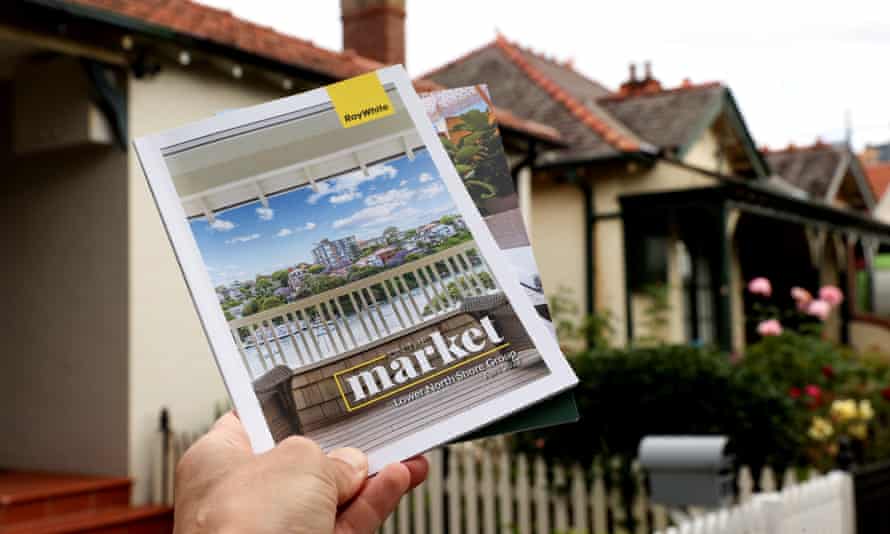
The combined capitals unit market fell 0.2%, its first monthly decline in values since October 2020, while regional unit values showed some resilience rising 0.8% over the month.
The CoreLogic research analyst Kaytlin Ezzy said monthly declines in unit values across Sydney (0.7%) and Melbourne (0.3%) weighed the national results down:
While last month’s rate rise likely added further downward pressure to the Sydney and Melbourne unit markets, growth conditions have been weakening over the past year amid worsening affordability, lower consumer sentiment and rising fixed mortgage rates.
More recently we have also seen surging inflation and a more cautious lending environment also dampening housing demand.
Samsung agrees to pay $14m penalty over misleading claims on Galaxy phones
Samsung has agreed to pay a proposed $14m penalty for misleading claims seven of its flagship Galaxy phones were water-resistant when the devices could stop working after being used in pools or ocean water.
Justice Michael Murphy approved the proposed settlement between the tech giant and the Australian Competition and Consumer Commission (ACCC) over the long-running case launched in 2019 over ads related to seven Galaxy phone models.
The competition watchdog had alleged Samsung had misled and deceived customers with its claims about phones across more than 300 advertisements since February 2016. In court on Thursday, the barrister for Samsung, Nicholas De Young, said the full calculation of advertisements affected came to 684.
The court heard it was impossible to tell how many consumers were misled by the ads and bought a device on that basis, and then subsequently found their devices stopped working, but the ACCC said it had received 63 complaints about it prior to launching court action, and 121 to date.
Murphy said he was satisfied the penalty had enough “sting” given the penalty equated to 14% of Samsung Australia’s profits over the past six years, however he said he did not give credit to Samsung for its cooperation in reaching a settlement after “some years of trenchant opposition to the ACCC’s case”.
Samsung will have 30 days to pay the federal government for the fine, with $200,000 added on for costs.
RBA living in ‘fantasy land’ when it comes to wages growth, says ACTU
From AAP:
Australia’s peak union body, the ACTU, believes the Reserve Bank of Australia is living in a “fantasy land” when it comes to wages growth.
The RBA governor, Philip Lowe, told an event this week that a steady state of wage growth should be about 3.5%, including 1% labour productivity.
However, Lowe has been concerned for a number of years that the rate of wage growth in the 2% to 2.5% range was too low.
The ACTU secretary, Sally McManus, says the RBA governor has “weirdly changed his tune”.
“To think somehow the system is going to deliver across-the-board pay increases of 5 or 7% is … fantasy land,” she told ABC radio on Thursday.
McManus said workers had been told they would get a pay rise when productivity increased, or when unemployment was low, or when profits were up and companies were doing well, but in each case they hadn’t.
“This has to do with a much bigger problem we have got as a country, not related to this year’s inflation spike,” she said.
“Current inflation has nothing to do with wages.”
Man charged over death at Yongah Hill detention centre
Western Australian police have charged a man over the death of a man following an incident at the Yongah Hill Immigration Detention Centre last week.
In a statement, police say they have charged a 29-year-old man with murder in relation to the incident.
Last week, a 32-year-old Turkish national died after being found with serious injuries.
The charged man, an Iranian national, will appear before the Perth magistrates court later today.
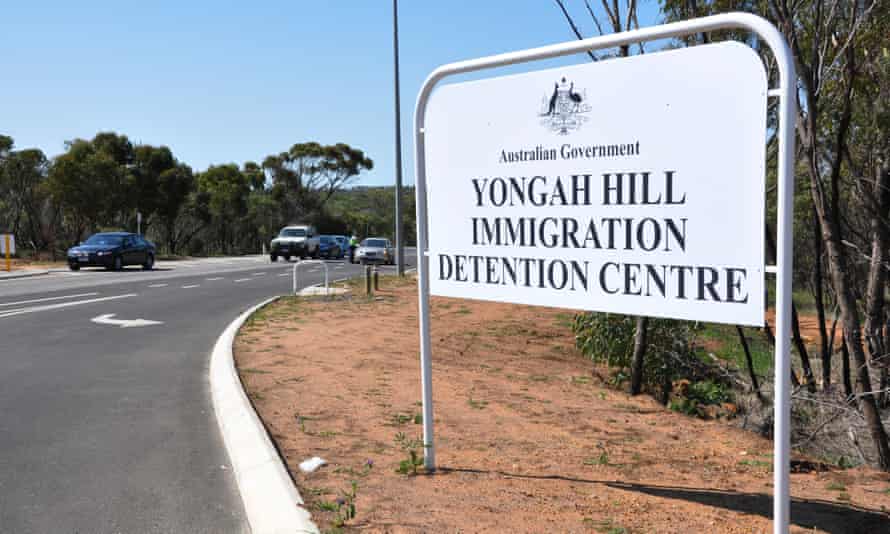
Almost one in three businesses are having difficulty finding staff
Almost a third (31 %) of employing businesses are having difficulty finding suitable staff, according to survey results released today by the Australian Bureau of Statistics.
Tom Joseph, the head of industry statistics at the ABS, said: “Large and medium-sized businesses (66% and 62%) were more likely than small businesses (29%) to have difficulties finding suitable staff. However, nearly half (46%) of small businesses affected were impacted to a great extent.”
The most frequently reported reasons were a lack of applicants (79%) and applicants not having the required skills (59%). “This corresponds with the strengthening jobs market and current low unemployment rate,” Joseph said.
“Businesses reported having difficulty finding suitable building trade workers, clerical workers, labourers, sales staff and hospitality workers. Other in demand jobs included engineering trades and ICT professionals.”
The results also provide information about overall changes in business operating expenses.
In June 2022, almost half (46 %) of businesses experienced increases in their operating expenses over the previous month. This is more than double the proportion of businesses compared to June 2021 (21%).
When considering the month ahead, 44% of businesses expect operating expenses to increase. The proportion of businesses expecting an increase is the highest recorded since the question was first asked in July 2020.
Hello everyone, this is Cait Kelly, I will be with you into the evening.
So let’s jump into it!
And with that I will leave the blog in the steady hands of Cait Kelly. Thanks for reading.
NSW Labor leader Chris Minns delivers budget reply speech
The NSW opposition leader, Chris Minns, has delivered his budget reply in parliament today, saying the government’s budget was designed in response to the “teals challenge”, as opposed to implementing “real change”.
Minns listed four things he said Labor would do differently:
- Give immediate help to household budgets.
- Grow jobs at home.
- Invest in education.
- Ensure the economy delivers for “the many, not just the lucky few”.
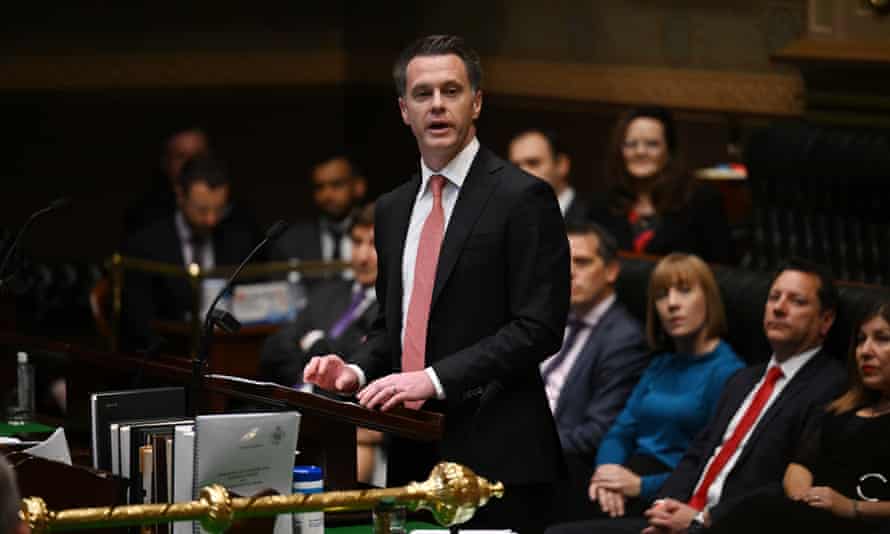
A Labor government will back NSW jobs with a comprehensive package of measures to get the job done.
We’ll do things differently … creating jobs in NSW through local procurement and domestic manufacturing, ending the obsession of offshoring jobs … and stopping the gutting of regional Tafe.
After four premiers, four treasurers, 12 budgets, the Liberals and Nationals are going to ask for 16 years in government.
The treasurer and the premier still think they can somehow announce their way into a better future for the people of this state. The future isn’t shaped by spin.
Minns said it was time to “turn the page” on the government, and announced a range of potential measures, including a target of 50% minimum locally made content for future rolling stock contracts, 100 new government preschools in its first four years, a ban on the sale of major state assets without the approval of both houses of the NSW parliament and dismantling the state’s controversial rail corporation.

Melissa Davey
New medical advice issued on electronic cigarette harm
National advice on electronic cigarettes has been issued by Australia’s health and medical research agency, the National Health and Medical Research Council.
The advice states the vapour from e-cigarette devices can be harmful and there is limited evidence that e-cigarettes are effective at helping smokers quit.
The advice has been supported by the chief medical officer and chief health officers from all states and territories. It is based on the most current evidence on the health impacts of e-cigarettes, including research and extensive toxicology reports.
The advice states:
- All e-cigarette users are exposed to chemicals and toxins that have the potential to cause harm. In addition to nicotine, more than 200 chemicals have been associated with e-liquids.
- E-cigarettes containing nicotine are addictive and people who have never smoked are more likely to take up tobacco smoking.
- E-cigarettes are not proven safe and effective smoking cessation aids. Many people end up using both cigarettes and e-cigarettes. There are other proven safe and effective options to help smokers quit.
The National Health and Medical Research Council CEO, Prof Anne Kelso, says:
The design and technology behind e-cigarettes continue to evolve but the method is the same – e-cigarettes deliver harmful substances direct to the lungs. We know from data gathered nationally that the number of e-cigarette-related calls to Australian Poisons Information Centres doubled between 2020 and 2021.
If you have never used e-cigarettes, don’t start – the evidence shows there is a possibility you will go on to smoke tobacco cigarettes.
Dominic Perrottet orders investigation into John Barilaro job

Michael McGowan
The New South Wales premier, Dominic Perrottet, has asked for an investigation into the circumstances leading to John Barilaro’s appointment to a plum $500,000-a-year trade commissioner job in New York City.
The Guardian revealed this week that Barilaro was given the trade job – which he created while still in government – ahead of another highly qualified candidate.
Perrottet revealed on Wednesday that Amy Brown, the chief executive of Investment NSW, had signed off on Barilaro’s appointment after the Guardian revealed she had previously answered to him while he was deputy premier.
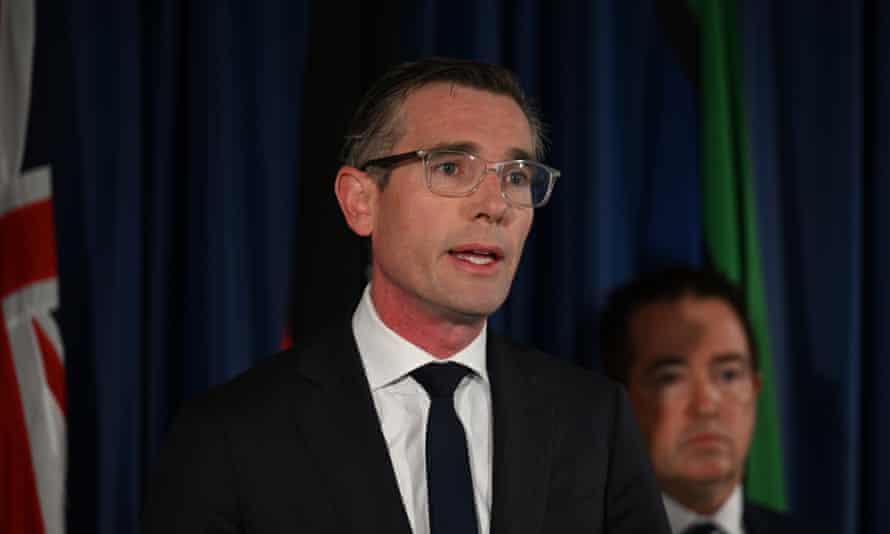
On Thursday Perrottet said he had asked for the secretary of the Department of Premier and Cabinet, Michael Coutts-Trotter, to investigate the appointment.
Perrottet said he would make the report public after it was completed.
It comes as the opposition leader, Chris Minns, said he would recall Barilaro from the job if Labor wins government at next year’s election.
Minns said:
We’re expected to believe a global search took place, not just the eight million people who live in this state but around the entire world to represent the economic and trade interests of the people of NSW and the bloke they picked was the guy they sat next to for 12 years who just happened to be the leader of the National party.
If we win the next election he’s going to have to come home. This is a farce.
Housing market posts first monthly decline since September 2020
Houses and units have recorded a 0.1% fall in value over May, the first fall since September 2020, as trends in value across both quarterly and annual timeframes continue to weaken.
According to CoreLogic’s national home index, this is the first month of negative dwelling value growth in 20 months, and comes amid “lower consumer sentiment, increasing global uncertainty, mounting inflationary pressure, and the first cash rate rise since November 2010, up 25 basis points in May”.
The results also showed a steeper decline for houses, which saw a larger monthly decline than units, falling 0.15% and 0.08% respectively.

The combined capitals unit market fell 0.2%, its first monthly decline in values since October 2020, while regional unit values showed some resilience rising 0.8% over the month.
The CoreLogic research analyst Kaytlin Ezzy said monthly declines in unit values across Sydney (0.7%) and Melbourne (0.3%) weighed the national results down:
While last month’s rate rise likely added further downward pressure to the Sydney and Melbourne unit markets, growth conditions have been weakening over the past year amid worsening affordability, lower consumer sentiment and rising fixed mortgage rates.
More recently we have also seen surging inflation and a more cautious lending environment also dampening housing demand.

Graham Readfearn
Mark McGowan announces 80% emissions cut by 2030 for WA government
The Western Australian government says it will cut greenhouse gas emissions from its own departments, agencies and government-owned enterprises by 80% below 2020 levels by 2030.
Premier Mark McGowan said the “whole-of-government” target would be reached with the help of energy efficiency, buying more renewable energy, cutting emissions in government-owned vehicles and also through the purchase of offsets.
A spokesman told the Guardian the 2019-20 baseline for the target was set at 7.3m tonnes of CO2-e.
Because the target only covers the government’s own emissions, WA remains without a statewide 2030 emissions reduction target.
Latest national figures that include 2020 – a year affected by drops in fossil fuel use as a result of the pandemic – showed emissions in the state were at 81.7m tonnes and had risen 4% from 2005 levels.
Last week McGowan announced the state would close its coal-fired power stations by 2030. McGowan said today:
This interim target sends a signal to the broader economy that we are serious about tackling climate change and setting up Western Australia for a healthy, prosperous low-carbon future.
Action on climate change is crucial to diversifying the WA economy, creating long-term jobs, managing environmental impacts, and protecting the health and wellbeing of Western Australians.
Greenpeace said the announcement was a “welcome step” but the state needed to rein in massive gas industry expansions that were impeding a clean energy transition.
Jess Panegyres, the head of clean transitions at Greenpeace Australia Pacific, said:
Western Australia is particularly vulnerable to worsening climate change, as we saw from this summer’s extreme heat and bushfires. It’s heartening to see the state government step up to protect West Australians from dangerous climate impacts by committing to strongly reduce emissions across state-owned utilities over the next few years.
As part of this ambitious climate agenda, we also need the McGowan government to get serious about reducing the role of gas, a dangerous fossil fuel that’s driving climate change.
With projects like Woodside’s proposed Scarborough and Browse gas fields set to release billions of tonnes of greenhouse gas pollution over the course of their operation, Western Australia’s gas industry undermines the state’s climate targets and impedes the clean energy transition.
Daniel Andrews pledges $100m to support Victorian innovation
As the Victorian premier, Daniel Andrews, was announcing a $100m investment from the Breakthrough Victoria fund to universities, he said he believed the state’s science and innovation can hold its own with the world’s best.
The funding will go towards turning groundbreaking ideas into commercial propositions, with examples including a prosthetic bone, which can replace the work done by screws and other surgical devices, developed at RMIT.
Andrews said the money, and the focus on innovation, will help the state as it emerges from the pandemic:
This is a big part of our future. But it’s happening right now.
It’s not about waiting with a sense of hope that there’s private sector investment. You’ve got to make these things happen. You’ve got to capture these ideas, help them come to fruition and then make sure that the jobs are right here in Melbourne and across Victoria, in every single industry.
We can’t take anything for granted. We’ve got big challenges as a state, as a nation, coming out of Covid. And the only way to deal with those challenges is to grow our way out of those challenges. And if you have all the best ideas coming from Melbourne, but the profits and the jobs are going to Singapore or to San Francisco, that’s no good for Victoria.
This is about supporting universities and those who through universities make these amazing, amazing discoveries. Coming up with these great ideas, they just need some support to take those ideas and turn them into products, profits and jobs, and that’s exactly what this platform will do.
When you talk about great cities of the world for science – and the same can be said for innovation and product development, for tech – you’ve got London, you’ve got Boston and you’ve got Melbourne, and we need to make sure that we value that and we continually invest to make sure that leading position is guaranteed. Guaranteed for the future.
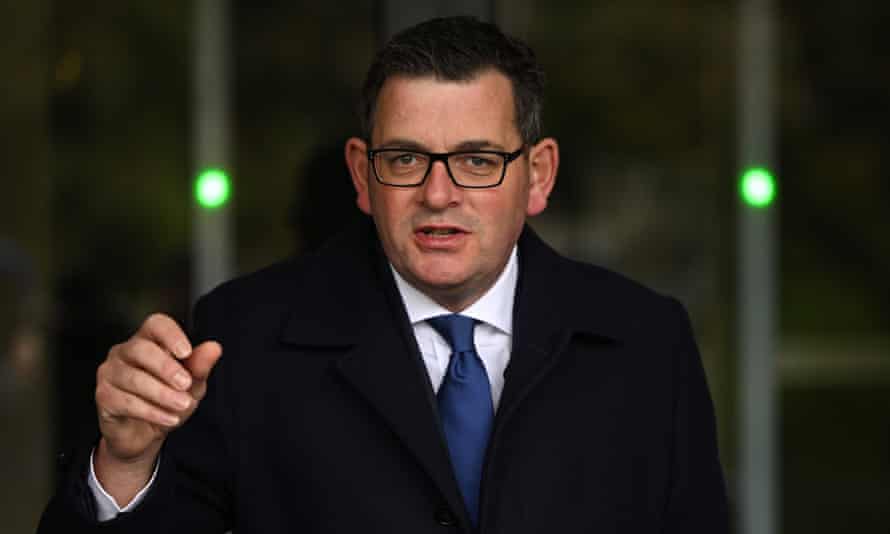
NSW opposition leader Chris Minns to push local manufacturing
The NSW opposition leader, Chris Minns, is preparing to deliver his budget reply speech, and told 2GB that he intends to call on the state government to copy the Victorian government’s manufacturing policy.
He says the government should ensure that at least 50% of items in the state are locally manufactured, as NSW has lost 42,000 local manufacturing jobs over the last decade.
Minns says he will be backing “Australian-made again”, but adds that residents should expect his plan to take a couple of years:
This is over the course of the next parliament, we can’t do it immediately. We have to build up the capacity in New South Wales.
It has been a cold couple of days but I have a feeling this picture will warm even the coldest among us:
Peter Dutton says Labor isn’t responding to issues fast enough
Opposition leader Peter Dutton has taken to the airwaves to blame both the energy crisis and asylum seeker boats from Sri Lanka on Labor.
Dutton, who, let’s not forget, was part of a government for nine years whose inaction has led to much of the issues being faced now, who had to be pushed into responding to the pandemic, and whose delay in vaccine rollout led to a range of challenges, told 2GB Labor needs to be more “nimble”:
I worry that they’re making the wrong decisions … you’ve got to respond quickly as a government to the problems of the day. You’ve got to be nimble.
He went on to call energy minister Chris Bowen a “disaster” and that Labor “haven’t got Operation Sovereign Borders” (I don’t understand that if the operation is ongoing), adding that the “sugar is back on the table” for people smugglers.


